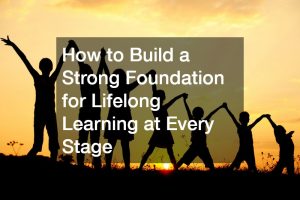As preschoolers eagerly approach the threshold of kindergarten, parents often find themselves contemplating the essential skills their little ones should possess before embarking on this new educational adventure. While the specific requirements may vary from school to school, there are fundamental competencies that can significantly contribute to a smooth transition and academic success in kindergarten. Let’s explore these critical areas in more detail.
The Importance of Readiness: Kindergarten readiness is more than just a checklist of skills; it’s about ensuring that children have the foundational abilities and confidence needed to thrive in a structured learning environment. Research has shown that children who enter kindergarten with strong foundational skills are more likely to experience academic success throughout their school years. By equipping preschoolers with the necessary skills and experiences, parents can help set them on a trajectory for future academic achievement.
Name Recognition and Writing: A foundational skill for kindergarten readiness is the ability of preschoolers to recognize and write their own name. Mastery of this skill not only fosters a sense of identity but also facilitates participation in various classroom activities. Encourage your child to practice writing their name using different mediums, such as crayons, markers, or even finger painting. This hands-on approach not only enhances fine motor skills but also reinforces the association between written symbols and personal identity.
Letter Recognition and Phonics: Familiarity with the alphabet is paramount for kindergarten readiness. Preschoolers should be able to identify both uppercase and lowercase letters and associate them with their corresponding sounds. Introducing phonics through interactive games and activities can make learning enjoyable and effective. For instance, playing “letter scavenger hunt” where children search for objects starting with a specific letter helps reinforce letter-sound associations while promoting active engagement.
Numerical Proficiency: Counting and numerical recognition are foundational math skills that preschoolers should develop before entering kindergarten. While counting from 1 to 20 is a common benchmark, introducing concepts like number sequencing, basic addition, and subtraction can further enhance numerical proficiency. Utilize everyday scenarios, such as mealtime or bedtime routines, to integrate counting and basic math concepts into your child’s daily life.
Shape and Color Recognition: An understanding of basic shapes and colors lays the groundwork for early math and art skills. Encourage preschoolers to identify and name shapes and colors in their environment, whether it’s spotting triangles in a picture book or sorting toys by color. Engaging in hands-on activities, such as building with blocks or creating art projects, provides opportunities for exploration and reinforcement of shape and color concepts.
Fine and Gross Motor Skills: Developing both fine and gross motor skills is essential for kindergarten readiness. Fine motor skills, such as cutting with scissors or tracing shapes, aid in tasks like writing and drawing. Gross motor skills, on the other hand, involve movements like running, jumping, and climbing, which promote physical coordination and balance. Encourage outdoor play and provide opportunities for hands-on activities that promote the development of both types of motor skills.
Social and Emotional Development: In addition to academic skills, social and emotional readiness is crucial for a successful transition to kindergarten. Preschoolers should learn to navigate social interactions, express their emotions, and demonstrate empathy towards others. Encourage cooperative play, role-playing scenarios, and open communication to foster these essential skills. Building a strong foundation in social and emotional development sets the stage for positive peer relationships and effective classroom behavior.
Independence and Self-Help Skills: Kindergarten places greater emphasis on independence and self-help skills, such as dressing oneself, following simple instructions, and managing personal belongings. Encourage preschoolers to take on age-appropriate tasks and responsibilities at home, such as setting the table or tidying up their toys. By fostering independence and self-confidence, parents can empower their children to navigate the demands of kindergarten with ease.
Curiosity and Love for Learning: Above all, instilling a curiosity and love for learning lays the groundwork for lifelong academic success. Encourage preschoolers to ask questions, explore their interests, and engage in hands-on learning experiences. Whether it’s a trip to the museum, a nature walk in the park, or a simple science experiment at home, fostering a sense of wonder and curiosity cultivates a positive attitude towards learning.
In conclusion, preparing preschoolers for kindergarten encompasses a holistic approach that addresses academic, social, emotional, and physical development. By focusing on these essential skills and fostering a nurturing learning environment at home and in preschool, parents can equip their children with the tools they need to thrive in kindergarten and beyond. Remember, every child is unique, so celebrate their progress and achievements along the way as they embark on this exciting educational journey.
.



